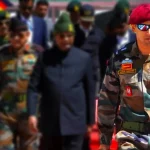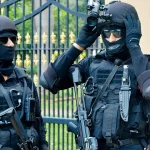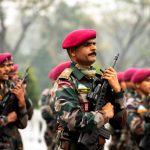In the journey toward a career in the Defence forces, personal interviews hold a pivotal role, especially during the Services Selection Board (SSB) assessments. These interviews are designed to evaluate candidates not only on their knowledge and skills but also on their personality, motivation, and officer-like qualities. Navigating through these interviews can be daunting, with candidates often feeling overwhelmed by nerves and uncertainty. However, staying calm and composed is crucial in showcasing one’s true potential. In this article, we present ten actionable tips for candidates to maintain calmness during SSB personal interviews, helping them to present their best selves.
Historical Context of SSB Personal Interviews
The SSB interview process has its roots in the British colonial era, aiming to select officers for the Indian Army. Its evolution over the years has seen a focus not just on academic competence but also on psychological and personality traits, reflecting the changing dynamics of military leadership. Today, the SSB emphasizes comprehensive assessments through various tests, including interviews, group tasks, and psychological evaluations. The personal interview is a critical component of this evaluation, as it offers insight into candidates’ motivations, character, and suitability for a career in the Defence forces.
The Importance of Staying Calm
In pressure-filled environments like the SSB personal interview, maintaining composure can make a significant difference. When candidates are calm, they are more likely to express their thoughts clearly, engage meaningfully with interviewers, and demonstrate their leadership qualities. A relaxed candidate can better manage anxiety, reduce the risk of miscommunication, and project confidence—qualities that are highly valued in potential officers. Below, we delve into ten key tips that can help candidates stay calm during this crucial phase of selection.
1. Prepare Thoroughly
Preparation is the cornerstone of confidence. Familiarity with the interview process and common questions can significantly alleviate anxiety. Candidates should engage in comprehensive research that includes:
- Understanding the purpose and structure of the SSB interviews.
- Familiarizing themselves with typical questions, such as inquiries about personal experiences, motivations for joining the Defence forces, and opinions on current events.
- Reflecting on their backgrounds, strengths, and weaknesses to articulate clear and thoughtful responses.
When candidates are well-prepared, they feel less anxious and more equipped to handle the interview challenges effectively, helping them to reflect their officer-like qualities (SSBCrack).
2. Practice Self-Introduction
A self-introduction serves as the first impression, making it crucial for candidates to deliver it confidently and naturally. Candidates should focus on structuring their introduction to include:
- Background: Briefly mentioning personal history, such as where they hail from and their educational qualifications.
- Hobbies and Interests: Highlighting passions and interests relevant to the Defence forces.
- Achievements: Speaking of accomplishments that reflect leadership, teamwork, or problem-solving abilities.
Rehearsing this introduction will help candidates recite it in a manner that seems genuine, rather than rehearsed, ultimately easing tension as they begin the interview (SSBCrack).
3. Maintain Positive Body Language
Body language can communicate volumes, often more than spoken words. Candidates should aim for positive body language by:
- Making Eye Contact: This demonstrates attentiveness and confidence.
- Sitting Upright: Good posture conveys professionalism and self-assurance.
- Avoiding Nervous Gestures: Candidates should be conscious of habits like fidgeting or shaking legs, which can project anxiety.
Controlling body language can not only help create a positive impression but also foster a sense of calm and centeredness during the interview (SSBCrack).
4. Manage Nervousness Through Breathing and Focus
Nervousness is a common experience during interviews; however, simple breathing exercises can serve as effective calming techniques. Candidates can practice:
- Deep Breathing: Inhaling slowly through the nose, holding the breath for a few seconds, and exhaling slowly can help reduce anxiety.
- Mindfulness Techniques: Focusing on the present moment can help candidates avoid spiraling thoughts about what might go wrong.
Engaging in these practices before and during the interview can significantly enhance mental clarity and composure (SSBCrack).
5. Stay Authentic and Honest
Authenticity is a compelling trait that interviewers appreciate. Candidates should aim to express their true thoughts and feelings regarding their experiences. If faced with a question they cannot answer, it is better to admit ignorance than to fabricate an answer. Expressing a willingness to learn shows humility and sincerity, which can resonate well with interviewers (SSBCrack).
6. Keep Updated With Current Affairs
Candidates must stay informed about current events, especially those related to the Defence sector and national issues. This knowledge can serve two main purposes:
- Confidence in Discussions: Being well-informed on topics enables candidates to engage more actively and thoughtfully in discussions.
- Demonstrated Awareness: Awareness of national and international events reflects a candidate’s interest in the world around them, a quality that is vital for a prospective officer.
Regularly reading newspapers, following Defence blogs, and engaging with current affairs through television and social media can enhance candidates’ preparedness (SSBCrack).
7. Regular Physical Exercise
Physical fitness plays a critical role in shaping mental resilience. Regular exercise helps reduce stress, enhances mood, and increases endurance. Candidates can engage in:
- Cardio Workouts: Activities like running, swimming, or cycling improve overall fitness.
- Yoga and Meditation: These practices promote relaxation and mindfulness, helping to manage stress levels effectively.
Incorporating physical activity into daily routines can prepare candidates both physically and mentally for the challenges of the interview process (SSBCrack).
8. Reflect on Your Experiences
Self-reflection is an essential part of personal and professional growth. Candidates should reflect on their life experiences to prepare for questions regarding challenges they have faced, lessons learned, and relevant successes. This practice can enrich their responses and foster self-awareness. Key points to consider include:
- Specific challenges faced and how they were overcome.
- Instances where leadership or teamwork showed their strengths.
- Turning failures into learning experiences that highlight resilience.
Reflecting on these experiences allows candidates to articulate their journey more meaningfully, thus reinforcing their suitability for the role (SSBCrack).
9. Practice Effective Communication Skills
Effective communication is key in an interview setting. Candidates must aim to speak clearly and confidently, ensuring they articulate their thoughts without rushing. Useful strategies include:
- Slow Down: Taking a moment to think before responding allows for clearer answers.
- Articulate Words: Pronunciation and word choice can convey professionalism.
- Listen Actively: Being attentive to questions ensures candidates answer appropriately and engage meaningfully with the interviewer.
Investing time in practicing communication skills—whether through mock interviews or group discussions—can significantly improve overall performance (SSBCrack).
10. Dress and Groom Professionally
First impressions matter, and appearance plays a vital role in forming these initial perceptions. Candidates should prioritize professional attire that:
- Is neat, well-fitted, and contributes to a positive image.
- Comprises a formal dress code, such as a suit or formal wear.
- Includes polished shoes, clean grooming, and appropriate accessories.
Dressing professionally not only boosts self-confidence but also reflects respect for the interview process and the personnel conducting it (SSBCrack).
Challenges and Solutions in the SSB Personal Interview Process
While the tips above provide a solid foundation for staying calm during SSB personal interviews, candidates may still face various challenges, such as unexpected questions, time pressure, and heightened expectations. Here are some challenges along with potential solutions:
- Challenge: Encountering unexpected questions can lead to panic.
- Solution: Practice improvisation and thinking on your feet with mock interviews. Familiarity with a broad range of topics can help you navigate surprises calmly.
- Challenge: Time pressure can create anxiety.
- Solution: Develop time management strategies during practice interviews, simulating real-time conditions to increase comfort with responding within time limits.
- Challenge: High personal expectations can lead to stress.
- Solution: Reframe mindset to view the interview as a learning opportunity rather than a pressure cooker. Engage in positive self-affirmations to boost morale.
Future Trends and Predictions in Interview Techniques
In an evolving world, the methods of assessment during SSB interviews are also changing. Technological advancements, such as virtual interviews and AI-based assessments, may become more prevalent. Candidates should be prepared to:
- Familiarize themselves with digital communication tools, focusing on articulating thoughts clearly in virtual formats.
- Adapt to new styles of questioning that may include situational judgment tests or simulation-based assessments.
The emphasis on behavioral competencies and soft skills such as emotional intelligence is expected to grow, making it essential for candidates to cultivate these attributes alongside traditional skills.
Conclusion
The SSB personal interview is a critical step in the path to a career in the Defence forces, and maintaining composure during this process is vital. By adopting the ten tips outlined in this article, candidates can significantly enhance their chances of success. It is essential to remember that the interview serves as an opportunity to showcase not just knowledge— but also personality, character, and their potential to be future leaders.
Preparing thoroughly, practicing self-introduction, managing body language, and engaging in effective communication are just a few ways to bolster self-assurance. Encouraging self-reflection and authenticity, alongside physical fitness and awareness of current affairs, will contribute to a well-rounded preparation strategy.
In a highly competitive selection process, where every detail matters, staying calm under pressure can ultimately discern between candidates. By implementing these strategies consistently and viewing the experience as a chance to demonstrate their potential, candidates can approach the SSB personal interview with confidence and poise. So take a deep breath, trust in your preparation, and seize the opportunity to shine.











